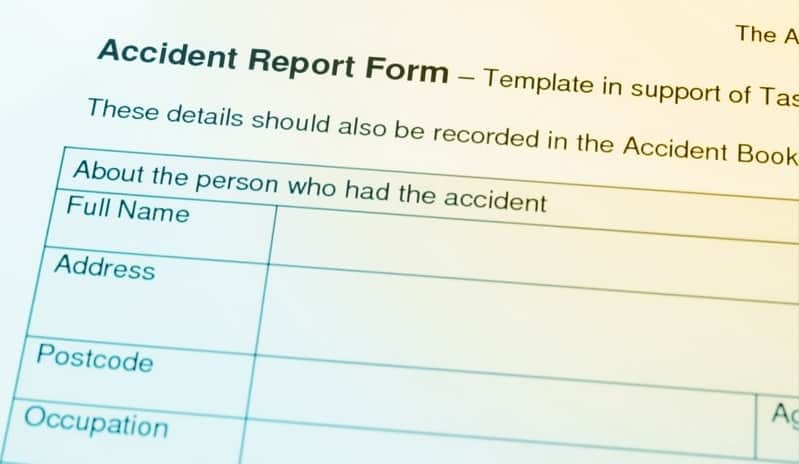
Accident Report
An accident report is a formal document detailing the facts and circumstances surrounding an accident, such as a car collision, workplace incident, or other personal injury event. Accident reports are essential in establishing what happened, who was involved, and identifying any immediate causes or contributing factors. In personal injury cases, an accident report often serves as a foundational piece of evidence, aiding attorneys, insurance companies, and courts in determining fault and assessing claims. At 770GoodLaw, we help clients understand the significance of accident reports and how they can support their case for fair compensation.
Purpose of an Accident Report
The main purpose of an accident report is to document key details immediately following an incident, ensuring an accurate and objective record. Accident reports provide an official account that can be referenced throughout insurance claims and legal proceedings, helping to clarify facts and avoid misunderstandings.
Accident reports typically serve to:
- Establish Facts: By documenting who, what, when, and where, an accident report creates a timeline and outlines critical details of the event.
- Support Insurance Claims: Insurance companies rely on accident reports to evaluate claims and determine coverage for damages, injuries, and other losses.
- Aid Legal Proceedings: Accident reports are used as evidence in court cases, providing an impartial account that can support or challenge claims of liability.
Information Included in an Accident Report
Accident reports are designed to capture relevant information that can help determine the cause and impact of the incident. Common elements found in an accident report include:
- Date, Time, and Location: Basic details about when and where the accident occurred help establish the context of the event.
- Involved Parties: Names, contact information, and insurance details for each party involved in the accident are listed, along with any vehicle information if applicable.
- Witness Information: Witnesses are often critical to understanding the accident’s events. Their contact information is usually included, allowing for future statements if needed.
- Accident Description: A summary of the events leading up to and following the accident is provided, often including diagrams or notes on vehicle positions, speed, and other details.
- Photographic Evidence: Many reports include photos of the accident scene, vehicle damage, injuries, or surrounding conditions that may have contributed to the incident.
- Officer Observations and Citations: In cases where law enforcement is involved, the officer’s observations, any citations issued, and an initial determination of fault may be recorded.
Types of Accident Reports
Accident reports vary depending on the setting and authority involved in documenting the incident. Common types include:
-
Police Accident Reports: In car accidents and public incidents, police officers often document the accident, providing an official and legally recognized report that can be used in court.
-
Workplace Accident Reports: In work-related injuries, employers are typically required to complete accident reports that comply with OSHA (Occupational Safety and Health Administration) standards.
-
Insurance Accident Reports: Many insurance companies provide forms for policyholders to complete following an accident, summarizing details to initiate the claims process.
How Accident Reports Affect Personal Injury Cases
In personal injury cases, accident reports are crucial for establishing liability and supporting claims for damages. The report serves as a third-party account of the incident, lending credibility to the injured party’s claims and providing a structured record for insurance adjusters and legal professionals. Accident reports can impact a personal injury case in several ways:
-
Identifying Fault: Police reports may include an officer’s preliminary assessment of fault, which can serve as a basis for liability in claims and court cases.
-
Supporting Injury Claims: Detailed documentation of the accident and resulting injuries can support claims for medical expenses, lost wages, and other damages.
-
Highlighting Contributing Factors: Accident reports may note environmental or situational factors, such as road conditions or weather, which can be useful in proving the cause of the accident.
How 770GoodLaw Assists Clients with Accident Reports
At 770GoodLaw, we recognize the importance of accident reports in building a strong personal injury case. Our attorneys work with clients to ensure their reports are complete, accurate, and supportive of their claims. Our approach includes:
- Gathering and Reviewing Accident Reports: We obtain relevant accident reports, carefully reviewing them to identify key information and assess how they support our clients’ cases.
- Clarifying Details: If accident reports contain ambiguous or incorrect information, we work with clients to clarify the facts, ensuring the report accurately reflects the incident.
- Utilizing Reports as Evidence: We use accident reports to substantiate claims during negotiations with insurance companies or in court, leveraging them to strengthen our clients’ positions.
- Working with Law Enforcement and Witnesses: When needed, we follow up with law enforcement or witnesses to gather additional details or statements that reinforce our clients’ cases.
Importance of Legal Representation in Cases Involving Accident Reports
While accident reports are critical in personal injury cases, they are often just one piece of the puzzle. Skilled legal representation can interpret and leverage these reports to ensure that they are used effectively in negotiations or court proceedings. At 770GoodLaw, we bring expertise in analyzing accident reports and applying their details strategically to secure the best possible outcomes for our clients.
Why 770GoodLaw is the Right Choice for Your Case
With our values of Relentless Reliability and Sincetegrity, 770GoodLaw offers dedicated support for clients, ensuring accident reports are used to their fullest advantage. From collecting accident details to building strong, evidence-based cases, we work diligently to protect our clients’ rights and secure fair compensation.






